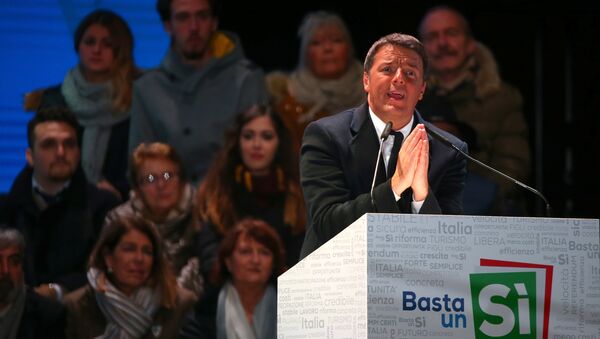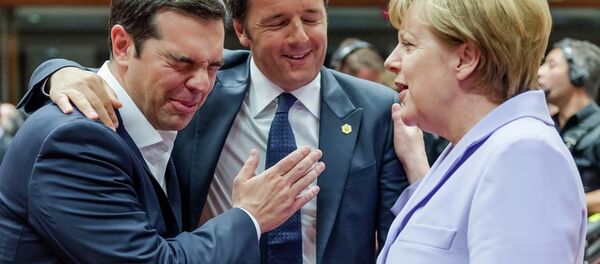Sommosa pointed out that various political forces in the country had an array of reasons to advocate for a "no" vote.
"Some were uncomfortable with the constitutional reform, while the majority wanted Renzi to resign, although they did not take implications of this decision into account. Opposition parties wanted to change the balance of power in the anti-government coalition. Those disappointed in reforms wanted to remove the prime minister. Those who associated Renzi with the EU and euro, as well as those who consider the constitution to be sacrosanct also said no," he explained.
Regardless of what particular reason had prompted people to vote against the reforms, the end result will be a "political tragedy," the analyst added.

This is the scenario that the Five Star Movement and the Northern League advocate. "They hope that they will be able to increase their presence in center-right opposition," Sommosa explained."These parties are not concerned with political and economic instability that such actions will lead to."
Sommosa warned that the worst scenario will see some trying to use this mess to attack Italian bonds on the markets, similar to what happened after Silvio Berlusconi's government resigned.
This is not to say that the victory of the "yes" vote at the recent referendum would have made the Italian economy stronger and more stable.
"However, it is clear that following the 'no' vote Italy will be plagued by weeks if not months of severe political turbulence. One cannot rule out that some people are ready to use this period of weakness in their own interests," Sommosa observed.
On Tuesday, Italy's Interior Minister Angelino Alfano said the country could hold snap parliamentary elections as early as February 2017.





